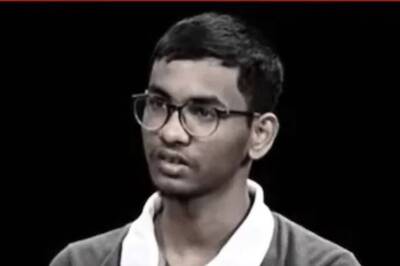
views
The Bharatiya Janata party's victory in 2019 Lok Sabha polls reiterates the fact that a massive wave of Hindu consolidation is going on and the BJP has reaped the gains from this as it remains a party that is unapologetic about standing for Hinduness which forms the core ethos of this nation.
In 1980, when Bharatiya Janata Party was founded, some of the party leaders had insisted that 'Gandhian Socialism' should be made the core ideology of the party. Despite opposition from large sections of the party, Atal Bihari Vajpayee, who was at the hem of affairs in the party at that time decided to continue with philosophy of 'Gandhian Socialism'.
In 1984, the BJP was reduced to two seats in Lok Sabha with even Vajpayee losing his Lok Sabha seat in Gwalior to a new comer from Congress Madhavrao Scindhia.
The party realised that this crushing defeat was not merely an outcome of a massive sympathy wave for Rajiv Gandhi, it was much more than that. The BJP had chosen the wrong ideological core and its workers were not getting motivated enough.
The BJP leadership immediately went for course correction and replaced 'Gandhian Socialism' with 'Integral Humanism'. The philosophy of 'Integral Humanism' was propounded by Deendayal Upadhyaya one of the stalwarts of Bharatiya Janasangh, the pre-1977 version of Bharatiya Janata Party. Upadhyay was a pracharak (full time worker) of the Rashtriya Swayamsevak Sangh (RSS), the ideological mentor the BJP. He was one of the founder members of Bharatiya Janasangh. His philosophy was deeply rooted in Hindu ethos or what you may call the Bharatiya cultural context.
Ever since the BJP adopted 'Integral Humanism' as its core ideology, the party has not looked back. And now it has created history by coming back to power with even greater number of seats than before.
What paid off the party has been its consistent stand on supporting concerns of Hindus and not looking at it from the prism of 'majoritarianism'.
The BJP did not turn around its back on the Hindus of the country despite being under constant fire by its detractors who tried to label it as a communal party for talking about concerns of Hindus in this country.
When Hindus across the country started an agitation for construction of the Ram Temple in Ayodhya, a sacred place for Hindus, the only party which supported the movement was the BJP. The non-BJP parties painted Hindus as a communal community for demanding this temple as a disputed structure claimed to be Mosque had stood up there.
For the sake of Muslim votes, which most parties wanted to have, the Hindu sentiments were consistently ignored. In the garb of 'secularism', policies to appease Muslims were adopted overlooking Hindu interests.
So much so that then Prime Minister Manmohan Singh said during UPA regime that Muslims have the first right over the resources of the country.
The Hindus of the country were feeling increasingly slighted by the way non-BJP parties treated them. It was the 'Muslim' factor which was driving priorities of the non-BJP parties in country that had more than 80 per cent Hindus. In 1980s and 1990s, the explosion of mass media made Hindus better informed as to how non-BJP parties had adopted double standards when it came to treating issues related to Hindus and minorities. This triggered consolidation of Hindu votes as Hindus realised that there is only one political party — BJP, which is standing by them.
This consolidation gained further momentum when Congress-led UPA government created a false bogey of Hindu terror by arresting Hindus as accused in some of the bomb blast cases. Such blatant use of official machinery to create a false bogey that insulted Hindus of the country was a wake up call for them. Cutting across caste lines, they backed BJP and voted Narendra Modi to power in 2014. Modi represented a potent mix of Hindutva and development and it was lapped up by Hindus.
During 2014-2019, Modi kept his word and worked as a Prime Minister who was guided by truly Bharatiya ethos. His visit to Kedarnath and Badrinath to do meditation after the polling ended was the biggest symbol of that.
While Modi and the BJP kept on winning state after state wiping out the non-BJP parties, the latter continued with their anti-Hindu stand. A false narrative was built about Modi government being 'intolerant' by raking up issues like mob lynching of cow slaughterers/smugglers. Several left leaning intellectuals and artists who were nurtured through institutional patronage indulged in theatrics such as 'returning the awards'.
A vicious campaign was run throughout Modi's first tenure to portray Hindus supporting Modi and BJP as anti-liberals. This actually added fuel to the fire and the Hindus decided to give a resounding answer to the anti-Hindu forces in the country by giving a historical mandate to Modi and BJP.
The BJP's rise in West Bengal where Mamata Banerjee is known to have taken an anti-Hindu stand and defeat of Congress stalwart Digvijaya Singh in Bhopal at the hands of Sadhvi Pragya Thakur who was falsely implicated tell you the real story behind these polls. The Hindu consolidation is on. The Left has been annihilated and the Congress has been crushed. Parties like SP and BSP which thrive on divisions in Hindu society and are known to be anti-Hindus have also received big blow.
The verdict for 2019 Lok Sabha polls has a clear message for all political parties — you can't afford to be anti-Hindu if you want to come to power in India.
(The writer is CEO of Indraprashtha Vishwa Samvad Kendra. The views expressed are personal)
















Comments
0 comment